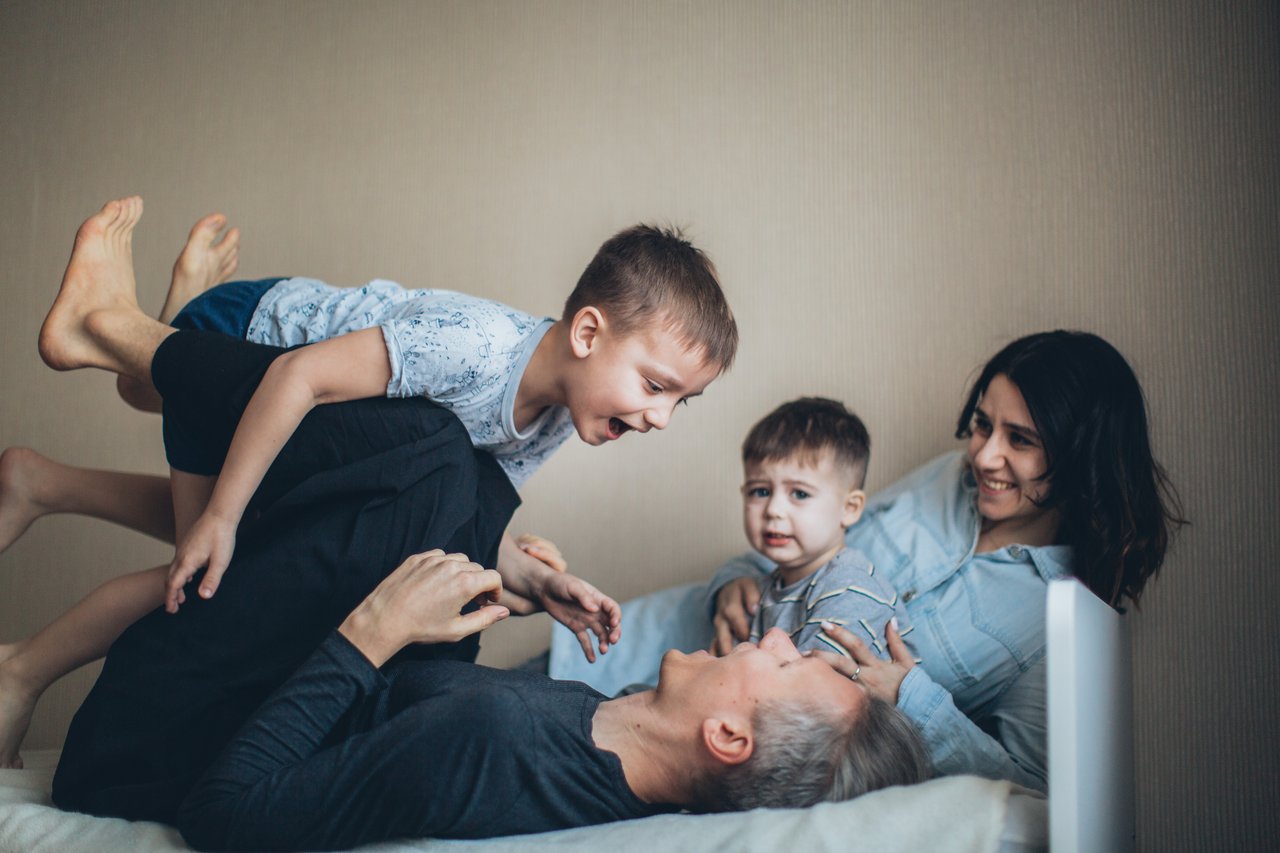Most families, post Shabbos evening meal, grab time to reconnect taking time for walks and boardgames. But, things are a little different at the Bender’s. Clearing out the living room, we have a good ol’ fashioned battle throw-down. My wife, taking a healthy distance away from the carnage, looks on as my kids figure out how best to tear me apart. My eldest, the tactician, bouncing from side to side weighs her options before her laser-targeted strike. My son, with reckless abandon, hurls himself into the air pulverizing me. The two-year-old, wise beyond her years, waits until I’m pinned before sauntering over, book in hand, to comfortably sit on my head to “read”.
Rough-housing isn’t exactly at the top of my favorite things list after the long week. Halfway through dinner I’m usually fantasizing about turning in early for some much needed shut-eye. So why do I do it? The terrifying research on antisocial disorder, aggression, anxiety, and peer rejection is enough to wake the dead and this literature points to one extremely powerful solution in increasing emotional stability, life success, and social intelligence: rough and tumble play. The question’s, why?
There’re a few parts here. Foundationally, good luck describing complex social skills to a two-year-old. They’re complicated even for adults to articulate and your window for maximum positive impact on socialization ends at age five. You have to show kids, embedding in their bodies, how to distinguish between playing and hurting – fun and danger. The line between these is ambiguous but vital in knowing how to stay safe without giving up the risk-taking necessary that breed purpose and success. This sensitivity also helps kids see boundaries not to cross. Dad will gently scold but forgive an accidental bruise – other kids won’t. A few missteps like that and say good-bye to play-date invitations. Another part is defragilization. The tougher kids experience themselves to be, the less susceptible they are to fear and emotional disorders. Finally, there’s a moral element – accidents happen. Normalizing mistakes leaves little room for toxic shame or bitter revenge. Similarly, forgiveness becomes more than an abstract idea. It transforms into a potently positive thing to give others. Through it, everyone wins – everyone gets to keep playing. Carrying an idea like that into adulthood, alone, is worth the bruises.
——————-
Rabbi Yonasan Bender LCSW graduated from Hebrew University’s School of Social Work. He works with adults, couples, and children from his private therapy practice in Jerusalem. He holds several semichos from Rav Yitzchok Berkovits, shlita. To share your thoughts, experiences, questions, or a different perspective, you can reach Rabbi Yonasan Bender LCSW at 053-808-0435 and at jerusalemtherapy@gmail.com or check out his website at www.jerusalemtherapy.org.




